If you have ambitions to work with global, household-name brands like FIFA or Wahl or Nestle (like we have), then this is the episode for you. We recently completed one of our most ambitious projects to date, teaming up with a household-name brand & a top-tier Netflix series & it got us thinking…Maybe our listeners will find it useful hearing the process we’ve gone through from working with small local businesses, to much bigger global brands. In this episode we reveal all (step by step).
00:00 – 01:04 Intro
01:05 – 06:40 How we went from working with micro businesses to working with global brands.
06:41– 12:36 Funny stories from early days.
12:37 – 15:32 Step 1: Hone your craft.
15:33 – 18:21 Step 2: Build the right relationships.
18:22 – 20:59 Step 3: Milk the top 10%.
21:00 – 22:52 Step 4: Constantly Innovate.
22:53 – 25:15 Step 5: Hire people more skilled.
25:19 – 26:21 Step 6: Personal development
26:22 – 28:33 Step 7: Keep levelheaded.
28:34– 18:28 Outro
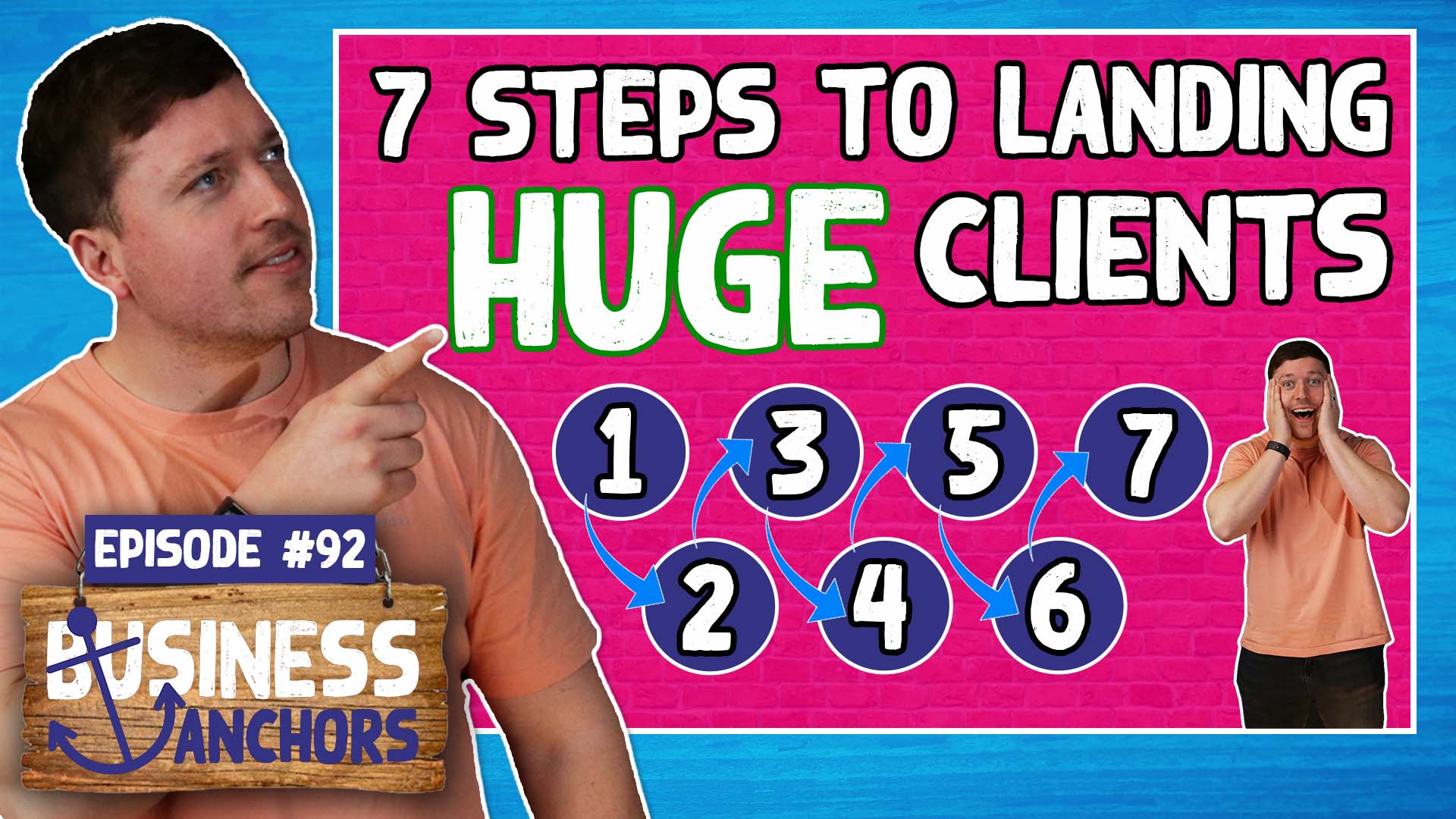
0:00 Pat
Hi, Pat, the podcast editor here. How can you take your business from small local deals to big corporate contracts? Well, in today’s episode Dan and Lloyd, discuss their foolproof steps to skyrocket any business into the big leagues.
00:14 Dan
You want to attract more of the bigger clients that have more budgets that value what you do more that don’t take up as much of your time. If you do the things that we’ve done. It’s proven to work. We’re evidence of that.
0:28 Pat
You’ll also hear Dan talk about his early business days as a part-time consultant and a part-time Dog Walker.
00:34 Dan
Used to go round there to do a kind of consultancy and advise them but ended up whenever I went there they just say. Oh, can you walk my dog? I’d get there and they’d go, you want to take him out? Don’t you dan? And I’d be like…
00:44 Lloyd
Why do you talk to you like a dog?
0:47 Pat
Right, let’s get stuck in. This is episode 92 of the business anchors, podcast.
01:05 Dan
How did we go from working with micro businesses to working with global brands Lloyd?
01:11 Lloyd
One step at a time? Yes, yeah, I think that’s been we’ll say more than that in this episode, hopefully. But I think that’s been a key thing that we’ve been taking small steps to the big goals we have to work in with bigger and bigger clients with bigger budgets, being able to do more creative stuff and the work we want to the work that’s going to help us achieve our goals.
But we’ve been taking small steps over years rather than like, it’s this, this episode won’t be oh, here’s the hack to work with a global brand. Because there isn’t a hack to do that immediately.
01:48 Dan
I was gonna say there’s no silver, there’s been no silver bullet. There’s been doing a whole range of things.
01:53 Lloyd
There are definite strategies and steps we’ve taken consistently over a long period that has proven to work, but there’s no shortcut like, Oh, next week gonna work with Addidas. So yeah, you’ve never done any of this work before.
02:06 Dan
And I think the reason I wanted to do this episode is that we recently did one of our most ambitious shoots today with a global brand in partnerships with in partnership with a very popular series. It’s on Netflix and has been on BBC.
02:21 Lloyd
And not even a global brand, where businesses just say global brand, because if you say global it .sounds good, it is global.
02:28 Dan
It is a household name brand that you have all heard of. And I thought I was just doing some reflecting. And I was proud of the team. And I thought, I reckon there are lessons from how we’ve got from working with, you know, your local hotel, to global brands, I think anchors, even anchors who might not have their businesses, but they’re marketers who are looking to up their marketing game. There are things we’ve learned over the years that I think your anchors will find useful.
02:55 Lloyd
If you’re new to following our kind of mine and Dan’s business journey and how our business has grown, you might see stuff and think like, oh, wow, that’s cool. Because a lot of people say to us, oh, it’s amazing this project you did, or you’ve worked with this company, and it is, but just to be clear, we, we started just working with anyone that would give us any money to try and grow the business. So we’ve been on all the steps along the way.
03:20 Dan
And if you want a real laugh, go on our YouTube channel, just search Knowlton. Some of our first videos are horrendous. And you’ll see like the calibre of work we were doing, which was terrible.
03:32 Lloyd
Horrendous, but we needed to take those steps. And it was interesting at first when Dan was doing more of the delivery of work. It was strange how all of our clients were either women or gay men seem to be a pattern when Dan was a young, young, naive businessman going into these small business thoughts. On reflection, that’s true, isn’t it? Yeah,
04:01 Dan
We had, it was interesting where we started because I think it’s important to talk about the kind of journey so we started out working with what types of businesses Lloyd. Give us a low down on the types of businesses we started working with.
04:13 Lloyd
A local hotel, like a small b&b style hotel, and things like oh, a local cafe in an in a small town. It was those sort of businesses, small budgets, you know, working directly with a business owner that might have had 123 staff. It was that kind of thing. Yeah, yeah.
04:35 Dan
And then so from there, just to address by the way I’ve got terrible hay fever, so sorry that I sound mental.
04:41 Lloyd
If you’re watching this. Dan’s not crying because he’s reflecting on the business.
04:47 Dan
I just feel awful.
04:48 Lloyd
Yes. But you’re pushing through it. Yeah.
04:51 Dan
But sorry to go back to that. So we started with those really small local businesses. And over the years, is it been about seven years now must have been about track six Think so? Yes, yeah. So we started with those kinds of businesses, then we started to, I call them like stepping stone clients, we started to go up a peg or two.
So I remember, remember that we weren’t that company made the coffee video, there was like a company that is maybe turning over over a million, yet it kind of like, going from really local small businesses too, you know, slightly larger businesses that had several employees and things.
05:30 Lloyd
It’s those steps as well, there were times along the journey where we’d worked with a bigger business that might be like turning over millions or hundreds of 1000s, depending on when it was during the journey.
But we might have worked with them in a very small way. So there’s that as well, you know, we it may be that we worked with a slightly bigger business on something hugely important for them, and they put all their budget behind, or there were steps along the way, where there were these really big businesses that we were just, you know, we might have done a couple of hours training with them. So it’s those kinds of steps. Yeah.
06:02 Dan
So the first thing, if you’re listening to anchors, is to manage your expectations of this process. This isn’t gonna be what you all want a quick three-step guide to, you know.
06:12 Lloyd
Will there be steps though?
06:14 Dan
There will be steps. Now, there are multiple steps that we’re going to go through in detail. But this is a process that if you want to learn from this from what we’ve done, you need to be doing this consistently over years, literally over years. It’s not just going to happen tomorrow.
So I know that will scare a lot of people off and think, Oh, I can’t be bothered to listen to the rest of this episode, because it’s going to take years. But honestly, if you do the things that we’ve done, it’s proven to work. We’re evidence of that.
06:41 Lloyd
So quickly before we get into those steps that we’ve taken to do that over the years. Can you tell us have you got any funny stories of the early days so people can understand how rubbish we have been?
06:52 Dan
Yes. Okay. I’ve got these some of these are horrible to remember, I remember my first group training session. Okay, so I think this was the first-ever piece of work I did, which was remember I went to a local networking breakfast group, you know where you go and have a fry up every week and pretend that you’re busy.
Yep. And there were lots of local businesses, small local businesses, cafes, hotels, the lot. And I did a group training thing at a casino which was weird in itself. The location was the casino. The reason for that was because we met at the casino for breakfast so I just asked the casino. Can I do a training thing here?
07:35 Lloyd
Oh, the breakfast was in a casino. Yeah, networking.
07:38 Dan
I know. Yeah. Okay. Weirdly when we moved locations several times that all the eggs were like snot. You know like when you’d have like a poached egg in it so there was rank anyway okay.
07:50 Lloyd
So don’t eat eggs at casinos that is the first lesson.
07:54 Dan
I did a group training and one of the biggest flaws with what I used to is was over-prepare and trying and do too much. So I had spent weeks developing this one-day session and the poor people that attended within an hour were like you know like even one of them said this is a bit too much for me and it was like an hour in.
And I was like oh my god, there’s seven more hours of this. So it was just way too much for everyone I went through the thought process I want to give them as much value as possible and teach them everything but actually, that had overwhelmed them and made them not have a good experience.
08:26 Lloyd
You were trying to teach them absolutely everything you knew in one day.
08:30 Dan
Yes.
08:30 Lloyd
Of course, can’t be done.
08:32 Dan
No. So that was kind of awkward when all these people look at you for an hour as a sort of ready to leave.
08:39 Lloyd
And you’re all in a casino at 10 am. I’m imagining the dark you know casinos usually don’t have windows and stuff. You are just in this dark room. Yes. an hour into a very intense meeting.
08:52 Dan
And I was quite nervous and they showed. I was wearing a suit for no reason because I thought that would make me look like it was talking about.
09:04 Lloyd
But it does, doesn’t it? Yeah, you don’t need to know what you’re doing. Just wear a suit.
09:11 Dan
So that was one of the bad ones. Another one was we weirdly used to have a client I won’t go into details about but used to go on the to-do kind of consultancy and advise them but ended up whenever I went there. They just say oh, can you walk my dog? And I told me like they were paying me to do consultancy, but I make me walk their dogs.
09:29 Lloyd
That’s how much they valued guidance. They were like, I will pay you the same hourly rate to go and walk my dog. Yeah, yeah, that was strange. I remember when you come back like oh, yeah, we did a couple of hours of this stuff. And then I walked Ben for half an hour. Yeah. Strange. And it was one of those where a client is asking you to do him favour the first I reckon the first time I would have been like yeah, oh, yeah, sure. I’ll take him out for a bit.
09:54 Dan
Yeah, but I’d get there and they’d go. Do you want to take him out? Don’t you Dan and I’d be like.
09:59 Lloyd
Why do they talk to you like a dog?
10:04 Dan
So there are a couple of interesting ones. What about you? Do you remember anything from the early days?
10:11 Lloyd
Well, I worked with the same dog walking client. Yeah.
10:15 Dan
Any part of your kind of the stuff that you were doing?
Yeah, well, with that, I mean, that was trying to train them on some stuff. They would just be awkwardly arguing with each other. The couple that ran the business. And so like, if I had an hour with them, it would be like 40 minutes of them just bickering. And I’d be like can we carry out now? And then it gets the oh, sorry, we haven’t got through too much. I mean, as you said, I prepare for hours, training them on this stuff. And they just prefer to argue. Yeah, so stuff like that.
It’s interesting.
10:55 Lloyd
Sorry, tell me something interesting.
10:56 Dan
I was just gonna say as, as the sort of, not the calibre of a climb. But as you start to work more with bigger companies, that kind of thing doesn’t tend to happen as much.
11:06 Lloyd
Because people lose their jobs if they if they’re not, you know, business owners. So they’re the only person who can do what they want in reality. But once you’re dealing with employees of a business, if they just argue through a training session, they’ve
paid Yeah, their boss is usually how can you not do that, or if you’re gonna just, yeah, just leave that come back.
But also, moving through the this, the steps, we’ll get to the steps, as we worked with bigger and bigger businesses, it’s, most people would think it would be harder dealing with the client. But it actually for me, I believe it becomes easier and easier, because the smaller businesses, they usually investing in whatever you’re doing. And the investment with you is a big decision to take that. Because they’re, you know, they might be spending 20% of the money coming in on your support.
So it’s a big thing. And so they want to know, every tiny detail, they want to understand everything, even though it doesn’t make sense for them to understand the process. They want calls with you all the time, whereas the bigger clients, might be spending 0.5% of their budget with you on this, particularly in particular support, and they’ve got lots of other important things going on. So they’re hiring you to support and leaving you to it rather than micromanaging you.
And it allows everyone to do a much better job. So that’s, that’s a really interesting part of the journey. Yeah, but let’s get into the steps to go from working with hotel owners walking their dogs, to global brands.
12:57 Dan
So here are those steps. And this is just from my experience, step number one, hone your craft. I think, one of the ways we have developed over the years sounds simple but is to practice and learn by doing. So when we started. And we said, we can help you with your social media, we were building our own social media channels, we were learning constantly reading articles, learning new strategies, going to events to learn about how we could improve our social media skills.
So the first step is really to focus on honing your craft and doing whatever you can do to get as good as you can. And maybe that’s getting qualifications, you know, if you’re an accountant, or it’s getting training.
I think this is the mistake most people make to not working with bigger clients over the years and just staying with those small businesses. Because there are a lot of coaches and people doing courses and stuff that teach you how to sell to these bigger clients and to raise your prices, and all this sort of stuff. And I see it online all the time. And I know that in the long term, it just won’t work for you there isn’t as they’re not good. You’re not good enough yet to work with the bigger client.
That’s not like being condescending or anything. It’s just like we weren’t good enough to sell to global brands.
13:52 Lloyd
If you’re working with like one-man bands and very small businesses at the moment, and you think you’re good enough to work with the biggest brands in the world, you’re probably wrong. I think we’ve all got to accept that we have so much to learn.
And if you think you know everything and you you’re good enough to work with those brands at the moment that you’re not, I think it’d be good to reflect and think no I’ve still got a lot of learning to do because just focusing on how to win the bigger clients rather than focusing on being able to do a better job for those clients is where I think the biggest mistakes made.
14:27 Dan
That’s such a good point. And I think this is where the whole growth via steppingstone clients comes in. If you’re working with small local hotels like we were six or seven years ago, don’t expect to in a week’s time work with global brands over the years you need to slowly increase the calibre of the client that you’re working with.
And across that period that allows you to hone your skills and hone your craft to try different types of projects and different work so that you’re constantly developing and the quality of what you’re doing is evolving in line with the calibre of client that you’re working with. That’s a really good point.
14:32 Lloyd
Even if you get a lucky break, and you’ve been on one of these courses that tell you to double your prices and attract these bigger clients, if you don’t improve what you do, that will just be a one-off. So you’ll do that you’re at some point, they’ll realise that you’re, you’re not delivering at a level that they need you to.
And you’ll go back down to working with the smaller budgets and the smaller clients. So in the long term, it doesn’t make sense. And that takes lousy resources, and you’re back to square one. So I think out of all the steps, this is the one most people miss and never get on to the other steps.
15:33 Dan
Step two, build the right relationships. Your net worth is your network is that the saying? No, your network is your net worth cheesy. That is the cheesiest thing we’ve ever said on the podcast. But it does hold some truth. Like it looking back at a lot of the opportunities that have come our way they’ve come because we’ve built relationships with the right people at the right time.
So really think about who in your industry can start to build relationships with not just people with who you want to become your clients, but who knows your clients, who already influence your clients that you can start to build a relationship with? You know, and we’ve done this in several ways.
You know, in the early days, looking back, we wrote for some industry-leading publications and built relationships with people who owned those big media outlets that allowed us to get our message to their audience. That was one kind of approach we’ve taken. We’ve built relationships with other marketers like us who work in different parts of the country who have opportunities come their way that that isn’t right for them, that they can pass on to us. So really think about that.
16:42 Lloyd
Most people talk about referrals and word of mouth, as in, they work for a client, and then they refer them to another business. But we’ve taken it to another level. And I would encourage any of you listeners to do it, where we’ve had work referred from a business owner that sat at a table at an award ceremony with us once. And we just were normal people and were nice and interested in what he had to say.
And that grew to us winning a client, we’ve won work from other marketers, as Dan said, which a lot of people see as competition, who have passed over leads to us that weren’t quite right for them. And we’ve, we’ve made hundreds of 1000s, from those referrals from people that are competitors, in most people’s eyes. So it’s not just referrals and like networking and getting those recommendations from people you’ve worked with, it’s all of the other people you’re meeting day today in your business, that’s important as well.
17:39 Dan
I think they need to be genuine relationships as well. Like, you can sniff a mile off if someone’s just trying to be like, hey, what do you do? Here’s my business card, like it needs to be genuine. And it needs to be kind of mutually beneficial.
17:52 Lloyd
Some people just try and do it as like a hack of, Oh, I’m gonna build relationships with people, but they don’t give a shit. You can tell they’re talking to you. And then they’re asking all these questions, but it’s like a robot pretending to be interested in you.
18:07 Dan
Like when we were in San Diego, like a networking party out there. And a woman interrupted a chat we were having with these two lovely women shoved her business card in Lloyd’s face.
18:18 Lloyd
Our two lovely women.
18:19 Dan
In a business scenario.
18:20 Lloyd
Oh.
18:22 Dan
Shoved the business card in Lloyds face and said, but asking him, what problems do you have with this kind of thing too, so that she could go, we’ve got the solution, and it was just rubbish. But yeah, step number three milk, the top 10%.
18:36 Lloyd
Sorry.
18:37 Dan
Stop talking over me, Lloyd. When we transcribe this, it’s difficult because you talk over me. So the top 10%. What we mean by milk to the top 10% is, remember earlier I mentioned those stepping stone clients? Yes, the clients that are taking you up a notch in terms of the calibre could maybe be a larger client, they may be more well known, and they may be more credible. Whenever you work with those clients that are taking you up to that next level, you need to milk the hell out of that in terms of your marketing to tell the world to look at this great work we’ve done with this client that’s of this calibre.
And what that’s going to do is attract more of those higher calibre clients. Rather than you know, you may, you may still do some work with a small local hotel or a small cafe. But you don’t want to attract more of those. You want to attract more of the bigger clients that have more budgets that value what you do more that don’t take up as much of your time.
Heard a lot of people talking about this saying like, Oh, I’ve had these one or two clients and the budgets for them and what I charge is like 10 times what most of the work I do is and then you look at their marketing and you don’t see any evidence of those big projects that they want to win more of. You just see they say their 10,000-pound projects.
You see all of this evidence of these 1000 pound projects in their marketing and you Can I kind of think well, what you’re showing the world is that I do these 1000 pound projects, so so there’s not going to be a 10,000 or 12,000-pound project, looking at your marketing and thinking, that’s the right person for me. So, yeah, it makes logical sense when you think of it, but it’s hard to get their mindset sometimes.
And here’s a practical example of how we’re about to do this. So we mentioned that we did one of our most ambitious projects yet with a global brand teamed up with a Netflix series. As soon as that project goes live, we are going to be milking the hell out of it. So we’re going to be plastering it all over our website and putting it as a case study on our website and prominent on our homepage, I’m creating a whole load of content to promote that.
20:44 Lloyd
I was just laughing because I was thinking you’re saying really good stuff. And I’m just not adding any value. Apologies.
20:55 Dan
A great addition to the podcast, yes.
20:58 Lloyd
Thank you, what’s step four, Dan.
21:00 Dan
Number four, constantly innovate. So even if what you do works well. And you’re currently in a place where you’re like, we really attracting lots of great clients, and our whole marketing strategy is working well. We’ve learned from this, that you don’t want to become complacent? Because what you’re doing now to attract those clients isn’t necessarily going to work as well, in one month, in six months, in two years. So you constantly need to be thinking, what are the latest platforms? What are some new techniques, what are some new approaches that we can start using to attract new clients, I’ll give you an exact example of this?
So in 2017, we discovered this new marketing approach, we call advertisement where you produce entertaining content that attracts new clients. And one of the types of content we did in that kind of scenario was skits or sketches, where we acted out relatable marketing situations. And then in that skit or sketch, we would have some key messages to sell what we did as an agency, and it worked incredibly well.
And a load of our work came from that approach. But even when we were at the height of that generating new business for us, Lloyd and I sat down and said, we’re in a situation now where this is working incredibly well. But we need to look for new ways to get business. And yeah, I remember you even saying this to me, because we can’t just rely on that forever. So then we, you know, as I like we always say 20% of your marketing should be testing new things.
Our business anchors podcast, this podcast was a test in February 2020. It’s now one of our biggest revenue generators. We’re now looking to grow on Tik Tok to experiment with the content there. In the future, I believe that’s going to be one of our biggest revenue generators. So it’s constantly about innovating.
22:49 Lloyd
I agree. Nothing from me. Step Five.
22:53 Dan
Step five, hire people who are more skilled than you. When we look back at the terrible videos I used to make. They were terrible. Then Lloyd came on board. And the videos were much, much better. When you still use CyberLink Pro to edit your videos. Was it sideline Pro?
23:16 Lloyd
CyberLink Pro direct I think.
23:17 Dan
Yeah. And then since then, we’re always looking to hire people who are more skilled at their craft than we ever have been. Because that’s going to help us increase.
23:26 Lloyd
This is a game-changer. And last week was a great example of this on the shoot that we did last week, where we took most of our team over working on that shoot, and to see everyone working together and with the other people we work with actors and some freelance people we work with as well, it was, it was amazing to see, I think at any one point, five to 10 people were doing much better than I and Dan could have ever done in those roles.
So if you think about it, of course, you’re going to be doing much better work if you’ve got those people doing so brilliantly at their thing that they’re good at. And this is another one where I think a lot of people don’t get past people who want or think that they need to know everything, otherwise their employees won’t respect them because they need to know more than them.
Where I think it’s the complete opposite. You need to be basically supporting these people that are better than you to do a brilliant job and just giving them any support they need but not expecting to know absolutely everything because that’s just going to be impossible to build your business if you need to know more than everyone else. Great. There’s some stuff that I and dan know more about, obviously, the things that we’re responsible for.
24:42 Dan
I think the bigger picture like vision for the business and stuff. That’s what we’re focusing on, and constantly innovating.
24:49 Lloyd
We weren’t expecting Taylor who’s in the room now to be better at that side of things. Maybe one day we will meet at the moment just like Taylor and expect me to be doing what he does setting up all the cameras and making all our videos brilliant and everything would be terrible if you did that exactly. Well, I used to. And you can see the massive difference and Taylor’s much better than me at that. Yeah, I mean, we should do a swap one day and just see how terrible we both are at the things we’re not good at.
25:21 Dan
Step six, oh, it’s more focus on personal development, there’s only a couple of more focus on personal development, something we try and do a lot of is focusing on learning new things, Lloyd and I both listen to a lot of podcasts, read a lot of audiobooks, or audiobooks and consume a lot of content, to try and be sponges to soak up as much information as possible to learn new things. Especially in our industry where things are changing.
Every hour, there’s a new update going on on a social platform, or there’s a new platform to look out for, we need to stay up to date with all of that stuff. And we focus a lot and also we kind of both enjoy learning stuff.
25:59 Lloyd
But it relates to the first step, the point I made when he said about the first step of getting better at what you do. If we were thinking now that we just know everything we need to know to be the biggest and most creative agency in the world, then we would fail. I think we know that there’s so much more we need to learn to keep taking those steps and doing better and better work and, and learning.
26:22 Dan
Yeah. And Step seven, the final step is to keep a level head. Again, in our experience business is like a roller coaster. There are lots of ups and downs on the journey of growing your business. It’s never just an uphill half.
26:36 Lloyd
Life is a roller coaster, just gotta ride it. Oh, yeah.
26:41 Dan
Lloyd, you have been brilliant in this episode.
26:45 Lloyd
I think that Roland Keating.
26:46 Dan
Where were we when we were talking about the good stuff, sorry? So it’s full of ups and downs. And I think in the early days, whenever we, I remember when we used we won like a project that was maybe a couple of 1000 pounds, and to us, at the time we’d won the lottery, we would stop working and like go down the pub and be like, well, let’s book a holiday. And now we’ve realized that we’re much more conservative now.
And even when we’ve had massive highs, like, for example, I think the last month or two have been one or two of our best months ever in the business. But I don’t feel like in my mind, I’m celebrating because there’s still a long way to go. So I’m thinking, okay, that’s fine. But what about the next, you know, six or 12 months.
27:32 Lloyd
More about the kind of trend line of where things are going rather than that because there are lots of up and downs way. So obviously, we’re going in the right direction, and gradually we’re heading towards our goals. But when you have that big peak of something brilliant happening. Yeah, it’s also understanding Oh, there’ll be challenges as well. And it’s not just always up and it won’t be always down when you have those challenges, it will.
27:53 Dan
And it is important to be conservative with your kind of cash flow as well when if you’ve got a massive new deal, and then they pay you a chunk of that money, don’t suddenly go out and like buy a new car or watch.
28:03 Lloyd
We had that like, I think last month, we just worked out that several clients paid chunks at the same time. So if we looked at that, we, you know, be again, like, Hey, let’s go on holiday we’ve got to spend all that money on stuff to deliver and pay wages. So you can’t look at that month, you know, the next two or three months, because we’ve had all that payment, we’re going to be spending that money now. So you got to look at the big picture and ride the highs and lows. Life is a roller coaster, you just gotta ride it.
28:34 Dan
Cool. So there are the steps. That’s hope that’s given you a bit of an insight into our journey from working with small, local micro-businesses to global brands. And do keep an eye out for this latest project we’ve done. It’ll be there’ll be a case study on our website and we’re constantly posting behind the scenes content on our socials. So yeah, if you found this useful as well please let other people know about the business anchors podcast because hopefully more people gain value from this.
29:01 Lloyd
Let us know in five years when you’re done with all those steps. Take a while but it will be worth it. Life is a roller coaster. You’ve just got to ride it. Oh yeah.
Hopefully this has been useful and helped to understand How To Go From Working With Micro Businesses, To Global Brands. If you have any more questions or want to know how Knowlton can support you Start A Conversation.























We've always wondered if anyone actually looks at the footer on websites. We don't think many people do. So if you're reading this... You're special.
Knowlton HQ, Unit 62 Maple Leaf, Manston Business Park, Ramsgate, Kent CT12 5GD
© 2024 Knowlton | UK. All Rights Reserved.